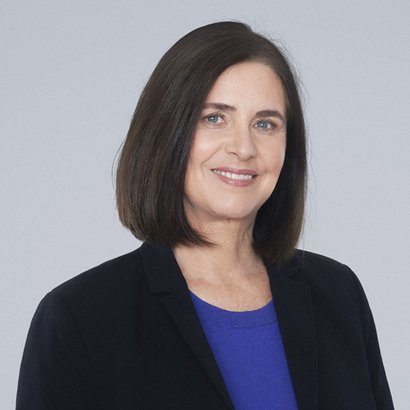Shafi Goldwasser: Mastering Computer Science and Data Security

Computer Science - Laureate for North America
Professor Shafi Goldwasser is awarded for her pioneering work in theoretical computer science and cryptography, a rapidly expanding field exploring the myriad ways to protect digital information. Her outstanding contribution to ensuring the integrity, authenticity and confidentially of digital information is of fundamental importance at a time of profound and growing concerns over cyberattacks and data privacy.
Her beginnings in Computer ScienceAs a child growing up in Israel, Prof. Goldwasser was interested in becoming a fiction writer, but soon transitioned to science, inspired by her dynamic and encouraging physics and mathematics teachers, and the lure of scientific reasoning. Her passion for cryptography began during her years as a graduate student, when she was fascinated by the ability to leverage basic number theory to emulate fundamental paradigms - such as secrecy, simultaneity, unpredictability and fairness - in a digital context. Both the United States and her native Israel have helped shape her scientific development, and she recognizes the positive, galvanizing effect of international collaborators and encouraging, supportive colleagues.
A groundbreaking scientific career
Prof. Goldwasser won the Turing Award – the most prestigious global prize in computer science remove globally - in 2012, becoming one of just three women to have ever been honored in this way. Among her other numerous prizes, she has also won the Gödel Prize twice (in 1993 and 2001), and is a member of the United States’ National Academy of Sciences.
In particular, she has defined the full spectrum of potential attacks on any code and designed randomized codes to combat them. She has also developed new tools for verifying the properties of data without disclosing it, and conceived secure methods for partnerships among competing entities while protecting their individuals’ data.
“Cryptography and security are central to our ability to use the digital communication platforms we currently rely upon for every aspect of our lives, from finance to medical discoveries, while respecting our privacy and rights.”
The place of women in the scientific field
As a woman in science, Professor Goldwasser notes the difficulty of being taken seriously or perceived as equal at times, early in her career, but even later too. She made it clear to her peers and colleagues that she was “someone to be listened to and reckoned with”. She credits the leading women scientists of today with both tenacity and brilliance, praising their ability to rise above derogatory, discriminatory attitudes and harness intuition, integrity and collaboration to prevail in their fields.
"We must keep raising this disparity throughout our scientific community to emphasize the need for change, supported by evidence. Achieving gender equality in science will lead to better science, a better workforce, and better educated children in future generations.”